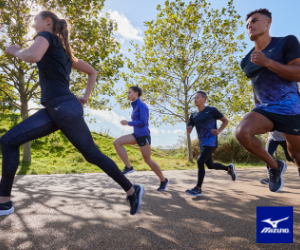I often see claims online that running is not the best way to lose weight. Honestly, this bothers me—people acting like they have all the answers. Personally, I’ve lost about 25 kilograms thanks to running. Every story is different, but this is mine.
My personal experience with running and weight loss
When I was around 20 years old, I weighed approximately 112 kg. Right now, I weigh about 87 kg. This change happened because I started taking running seriously. Before that, my weight fluctuated. There was a period when I lost weight by walking a lot, reaching around 94 kg, but then I gained it back up to 103 kg. However, during the COVID period, I started running.
I was lucky not to get injured, even though I started on worn-out fitness shoes from a budget store. In the beginning, I ran loops of 4–5 km, three times a week. After about two months, I gradually increased my distance. Eventually, I was able to run 10 km and signed up for my first race—early 2021 at the Groet uit Schoorl Run.

The impact of running on my weight
Unfortunately, life got in the way. I was working a lot and lost motivation to run. My training volume dropped, but my calorie intake remained the same, so I gained weight again, reaching around 100 kg. During this period, I kept running, but never more than 6 km. After about a year and a half, I changed jobs and regained my motivation to run more. Eventually, I signed up for the Amsterdam Marathon. The entire year of 2024 was dedicated to running. I also became more mindful of my diet and what I was putting into my body. The combination of these two factors helped me shed the weight again.
The Key Factor: Calorie Intake + My Top Tips
Exercise and movement are important, but the most crucial factor in weight loss is your calorie intake. In theory, losing weight is simple: burn more calories than you consume, and you will lose weight. In practice, however, it can be quite challenging. Here are my top tips that helped me:
- Track your calories. Yes, it can be annoying, but it really helps you understand how much you’re eating and drinking. I personally use the free version of the MyFitnessPal app. The key is to be honest with yourself. As the saying goes, “What gets measured, gets managed.” Once you know what you’re consuming, you can make adjustments.
- Weigh your food. I often didn’t eat unhealthy foods, but I simply ate too much of them. When I started training (and losing weight) for the marathon, I also began weighing my food—mainly pasta and rice. Many people see carbs as the enemy, but for runners, they are absolutely essential. Too many carbs, like anything, can be bad. So, weigh your portions. For me, 100 grams of pasta or rice is enough to feel satisfied.
- Stick to your plan and don’t get discouraged. It takes time for your body to enter a fat-burning phase, so don’t expect to reach your goal weight in just a week. Healthy weight loss takes time—give yourself that time.
Conclusion
Running can definitely contribute to weight loss, but it’s not a magical solution. My own experience shows that consistency and a balanced diet are the real keys to success. While exercise helps burn calories, your intake remains the most important factor in losing weight.
By making conscious food choices and incorporating running into your routine, you can lose weight in a healthy way and maintain an active lifestyle. Give yourself time, be honest about your eating habits, and stay motivated—results will follow.
If you want tips on how to begin with running check out this article.

